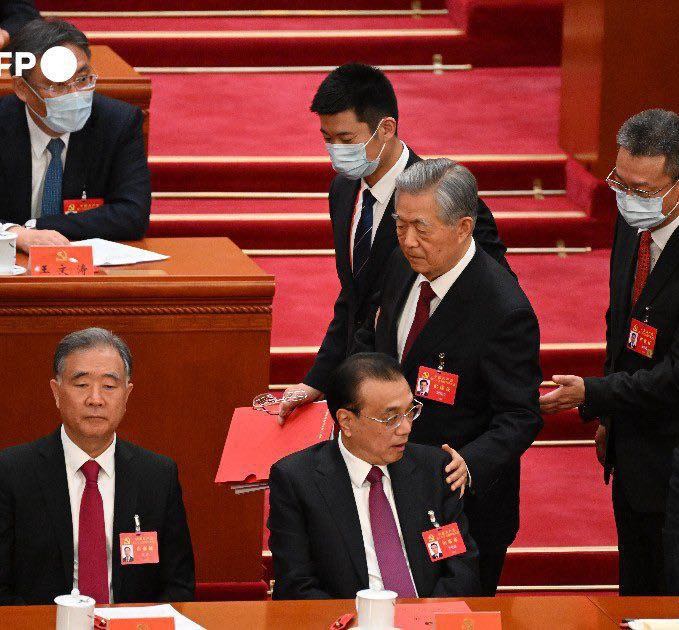
Associate Professor @AU_SIS. Sociologist studying contentious & elite politics, empires, social networks, knowledge, methodology, theory, and China.
6 subscribers
How to get URL link on X (Twitter) App


 In the past weeks, we saw violent labor protests in Zhengzhou, contentions mourning the deaths in Urumqi, the spread of the mourning protests in other cities, the campus protest in Nanjing Media College and other universities, and massive online protests (& censoring). 2/
In the past weeks, we saw violent labor protests in Zhengzhou, contentions mourning the deaths in Urumqi, the spread of the mourning protests in other cities, the campus protest in Nanjing Media College and other universities, and massive online protests (& censoring). 2/


 So my story is more than "once upon a time in Tsinghua"; it is also about environmental governance, which has become increasingly important in China since 2000s. More than passive or performative governance, environmental governance is provocative and substantive in China. 2/
So my story is more than "once upon a time in Tsinghua"; it is also about environmental governance, which has become increasingly important in China since 2000s. More than passive or performative governance, environmental governance is provocative and substantive in China. 2/



 Xi will rule China for not one but at least two and likely three terms (15 years). He is "only" 69 year old: Mao ruled China until his death at 83 and Deng kept CMC Chair until 1989 when he was 85. So don't expect Xi to retire before 2037. Xi's power apex just started, today. 2/
Xi will rule China for not one but at least two and likely three terms (15 years). He is "only" 69 year old: Mao ruled China until his death at 83 and Deng kept CMC Chair until 1989 when he was 85. So don't expect Xi to retire before 2037. Xi's power apex just started, today. 2/
https://twitter.com/ProfYangZhang/status/1582074602942889985In PRC history, Hua Guofeng is the only leader who was simultaneously party chairman and premier (1976-1980). Hua succeeded the two positions from Zhou and Mao in 1976. This is a unique arrangement also because the national chairmanship was abolished at that time. 2/
https://twitter.com/joshchin/status/1582061025645383681wsj.com/articles/china…

 Professor Wu Guoguang’s book is a scholarly study about China’s party congress. Professor Wu was an adviser to Zhao Ziyang in 1980s and has both insider knowledge and academic expertise. This is a must read. 2/
Professor Wu Guoguang’s book is a scholarly study about China’s party congress. Professor Wu was an adviser to Zhao Ziyang in 1980s and has both insider knowledge and academic expertise. This is a must read. 2/ 


 From a sociological perspective, the party congress contains rich information about rituals, rules, relationships, interactions, languages, and symbols. These are not simply performative; they deliver abundant substantive, procedural, and cultural message. 2/
From a sociological perspective, the party congress contains rich information about rituals, rules, relationships, interactions, languages, and symbols. These are not simply performative; they deliver abundant substantive, procedural, and cultural message. 2/
https://twitter.com/business/status/1580708740440825856They will declare "victory", for twice, in the Party Congress and the National People’s Congress in March 2023. After that, the season of power transition is over, so it is politically safer for both central and local officials to consider change. 2/